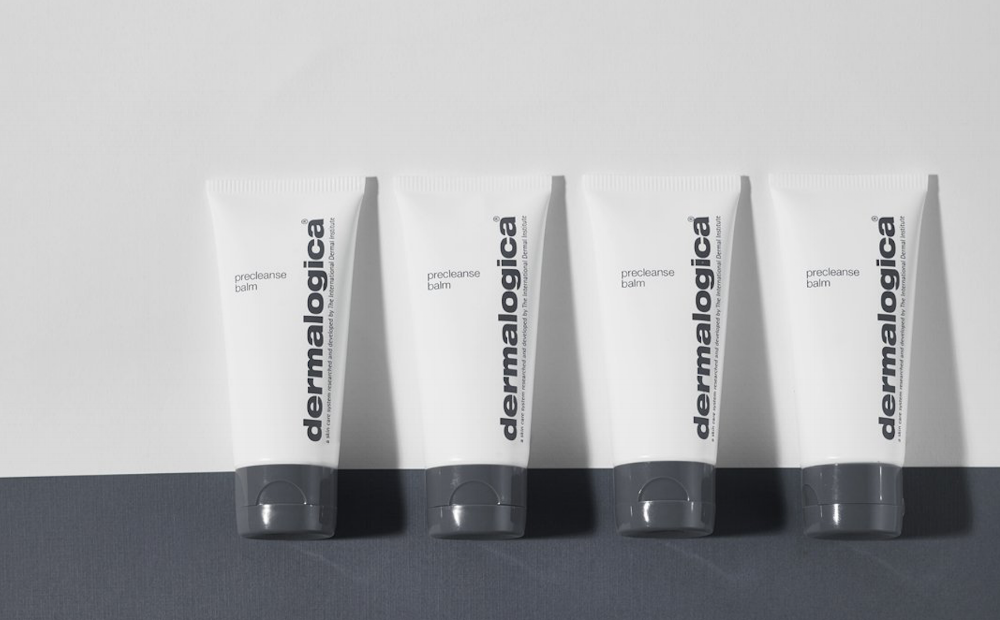On the shelves of Target’s brick-and-mortar stores across the U.S. and on its heavily-trafficked e-commerce site, beyond the stable of private-label beauty products, you will find a growing list of buzzy brand-name goods, an effort to tap into the $1 billion-plus market for specialized – and in particular, natural – beauty goods. The American retail giant’s “Premium Beauty” section boasts names, such as La Roche Posay, Lumene, Glow Studio, MD Complete, and Honest Beauty.
Also available: Dermalogica, but likely not for much longer. According to a new complaint filed in a California federal court by the Carson, California-based beauty brand, Target is not on its list of authorized retailers and by selling Dermalogica products, complete with point of sale marketing materials that “mimic the characteristics of Dermalogica’s marketing materials,” Target is running afoul of the law.
Dermalogica – which was founded in 1986 and acquired by British-Dutch transnational consumer goods conglomerate Unilever in 2015 – asserts that it “goes to great lengths to control the quality of goods that bear [its] trademark,” including by strictly limiting the third-parties that can “market and sell [its] goods to a network of authorized resellers.”
In an effort to uphold its premium brand image, Dermalogica requires its authorized retailers to sign off on “anti-diversion provisions by which [they] specifically agree not to sell or transfer Dermalogica brand products to any other location (other than their account location), or to any other reseller, distributor, website operator or retailer.” The beauty brand also ensures that its genuine products “contain labels – authenticity holograms and serialized quality control tags – that Dermalogica uses as part of its efforts to monitor and control the quality of its goods” and to “monitor for counterfeit products, knock-offs, or grey market goods.”
Nonetheless, Dermalogica alleges that Target is has been coming into possession of its products, (some of which “have had their authenticity holograms and serialized quality control tags removed and replaced with counterfeit labels,” a claim that is a throwback to the heavily-cited Davidoff v. CVS case), and marketing and selling them. This is paired with “Target’s development of its own displays to sell product bearing the Dermalogica trademark … to confuse consumers and create the appearance that Target is an authorized reseller of Dermalogica personal-care products.”
The marketing materials are also “misleading” because they contain erroneous information. According to Dermalogica, Target’s marketing materials state, for example, “that Dermalogica’s product, Active Moist, will ‘Prevent future breakouts.’” However, Dermalogica states that, in reality, “the product is designed and marketed by Dermalogica for moisturizing [purposes] only and has no acne inhibiting qualities.”
Still yet, Dermalogica continues on to assert that Target is selling grey market goods (i.e., items imported into the U.S. from another market and sold without the consent of the trademark holder). Dermalogica states that Target is selling products in the U.S. that “were manufactured and packaged exclusively for sale,” and initially sold, in other countries.
This is significant, as “goods that are sold in different countries may use different product packaging to serve the consumers in that country and to comply with local law.” So, for example, “some Dermalogica products that [are] sold in Canada is different from product sold in the U.S., and it is neither intended nor authorized to be imported into, distributed or sold in the U.S.”
Dermalogica says that its counsel “has notified Target and its counsel on at least 3 occasions that Target is not authorized to sell goods bearing the Dermalogica trademark,” but “despite Target being informed that its sales of product bearing the DERMALOGICA mark interfered with Dermalogica’s contracts and economic relationships, and constituted violations of the Lanham Act, among other wrongs, Target has continued to stock and sell such product.”
As a result, the brand has set forth claims of Unfair Competition/False Designation of Origin, False Advertising, Tortious Interference with Contractual Relations, and Tortious Interference with Prospective Economic Relationships, among others.
The lawsuit comes amidst a larger global fight in which brands are seeking the ability to block retailers from selling their products on online platforms, such as Amazon, in order to preserve the luxury or premium image of the goods and the brands as a whole.
Almost a year ago, the European Court of Justice sided with beauty and fragrance giant Coty in its battle to prevent distributor Parfümerie Akzente GmbH, an authorized distributor, from selling its products via third party platforms online. The decision of the ECJ, the European Union’s highest court , is expected to have far-reaching consequences for selective distribution systems, in general, and for third party platform bans, in particular.
Meanwhile, the beauty industry has been rife with litigation as of late. Just this past week, L’Oreal sued Drunk Elephant for allegedly infringing one of its utility patents by way of its buzzy C-Firma serum. Both Kim Kardashian and Kylie Jenner are facing individual lawsuits over their beauty ventures. And Deciem, parent company of The Ordinary, has been embroiled in litigation following the latest social media outburst of its uber-eccentric founder.
UPDATED (January 31, 2020): The court dismissed the case with prejudice one day after counsel for Dermalogica filed a stipulation to dismiss the case as a result of the parties settling the matter amongst themselves. The dismissal comes one month after the court ordered that a number of motion deadlines be removed from the calendar “based on communications from the parties relating to possible settlement of this action.”
*The case is Dermalogica, LLC v. Target Corporation, 2:18-cv-09580 (W.D.Cal.)











